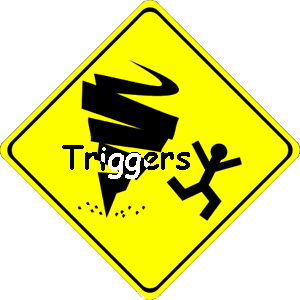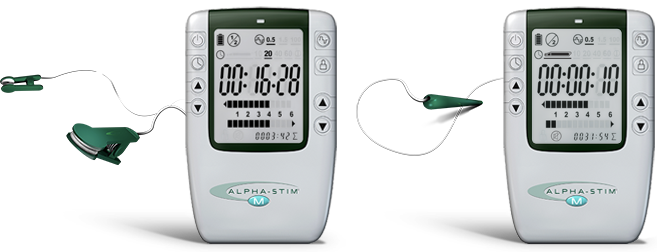
A daily breathing practice is proven to be good for your mind and body.
Navy SEALS, Buddhist monks, and titans of all industries do it – you should too.
It will improve your focus, discipline, mood, stress level, coping skills, relationships,
and basically your whole life in less than 5 minutes per day! (seriously).
Read on for the 4 reasons you should have a daily breathing practice and 4 tips to
get you started.
Breathe. No really, take 5 seconds and take a deep full breath in and out. Now take
another one. Just take one more even bigger one. Congratulations. You have just
started your daily breathing practice!
I know, I know – you’re thinking, “but Matt, honestly, I’m an excellent breather. I do
it all the time, and I’m really quite good at it.”
I agree, you do it all the time, but the odds are, you’re terrible at it right now. But
don’t worry, you’ll be great soon. It will feel weird for a couple days, but it will be so
worth it. Stay with me.
The benefits of a daily breathing practice are well documented. Yes, of course, we
all breathe all the time. It’s a requirement for all carbon-based lifeforms. However,
a daily breathing PRACTICE is different from the second to second maintenance
performed by our autonomic nervous system.
The benefits:
A wide variety of studies have shown that a daily breathing practice will improve
your focus, discipline, mood, stress level, coping skills, relationships, and basically
your whole life. Here are some articles that document the benefits of controlled
breathing. They document how a daily controlled breathing practice will improve
your life and describe how these practices are implemented by Navy SEALS,
Buddhist monks, and titans of all industries. If it’s good for them, it’s good for us.
https://mobile.nytimes.com/2016/11/09/well/mind/breathe-exhale-repeat-the-
benefits-of-controlled-breathing.html?_r=3&referer=http%3A%2F%2Fm.facebook.com%2F
http://examinedexistence.com/the-navy-seal-breathing-technique-to-calm-down/
Homepage
Here are the highlights:
First – taking some control over your heart rate is excellent for your physical and
psychological health. Physically it improves the function of the parasympathetic
branch of the nervous system, which can slow heart rate and digestion and promote
feelings of calm as well as the sympathetic system, which controls the release of
stress hormones like cortisol.
Second – there are immediate benefits: controlled breathing can get you through
tough times. Yes, it will help you in times of crisis, like when you’re in a fender
bender on the highway. It will also help you when you’re being challenged in a
situation at home or at work. The sense of calm it gives you in these moments
enables you to think more clearly, more critically, and leads you to much better
outcomes in each given situation.
Third – there are delayed benefits: most practitioners report delayed benefits
throughout the day and in the days following their practice that include decreased
stress, increased capacity to handle stress, improved coping skills, improved peace
of mind. Who doesn’t need this?!
Fourth – It’s so accessible. Anyone can do this! This practice is so good for you it
feels like it should be expensive, time consuming, and difficult, but it’s actually none
of these things. It’s just new to most of us. A daily breathing practice can take less
than five minutes to reap major benefits. This is meditation for people who can’t
meditate.
DO YOU HAVE FIVE MINUTES EACH DAY TO DEDICATE TO YOUR MENTAL AND
PHYSICAL HEALTH?
If the answer is “YES”, then keep reading for tips on continuing your daily practice.
Remember, you already started in the first paragraph of this post.
Essential elements of a daily breathing practice:
It must be regular – you must find a way to do this most days of a given week.
It must be focused – you should not be doing this while you’re doing something else.
That’s it.
Tips to get the most out of your daily breathing practice:
Find a comfortable place to do this. Your bed, shower, and toilet are all great places
to do some daily focused breathing. As long as you can get there regularly and be
focused – with no distractions – the location will be great.
Have a pre-routine. Do something like an environment check and a body check
before you start. This can take thirty seconds or less. Ask yourself – am I safe here?
Am I unlikely to get interrupted here? Am I comfortable here? Are my (shoulders,
neck, tongue, hands, feet, etc.) tensed or stressed?
Set a goal, like 15 breaths to start. Begin taking deep comfortable breaths and try to
focus only on your breath coming in and out of your body.
Other thoughts will enter your mind. That is ok. Notice them. DO NOT JUDGE
THEM. Then let them leave your mind. Get back to counting your breaths.
Once you get to 15 breaths, take 1 more and think about how great you are for
taking two minutes for yourself. You just improved your life. Go you!
As this gets easier, try increasing the number of breaths or the time you are
spending breathing deeply while being aware of your thoughts and NOT JUDGING
THEM.
Try this daily for two weeks. If you’re not impressed with the results then let me
know. I maintain a daily breathing practice and it keeps me in great shape to
receive your constructive feedback.
Here’s a link to some more mindfulness exercise options if breathing is getting
boring for you: http://www.pocketmindfulness.com/6-mindfulness-exercises-you-
can-try-today/
You’ve got nothing to lose and a lot to gain. If you’re ever in trouble, remember the
3 B’s of good health – breathe, baby, breathe!









